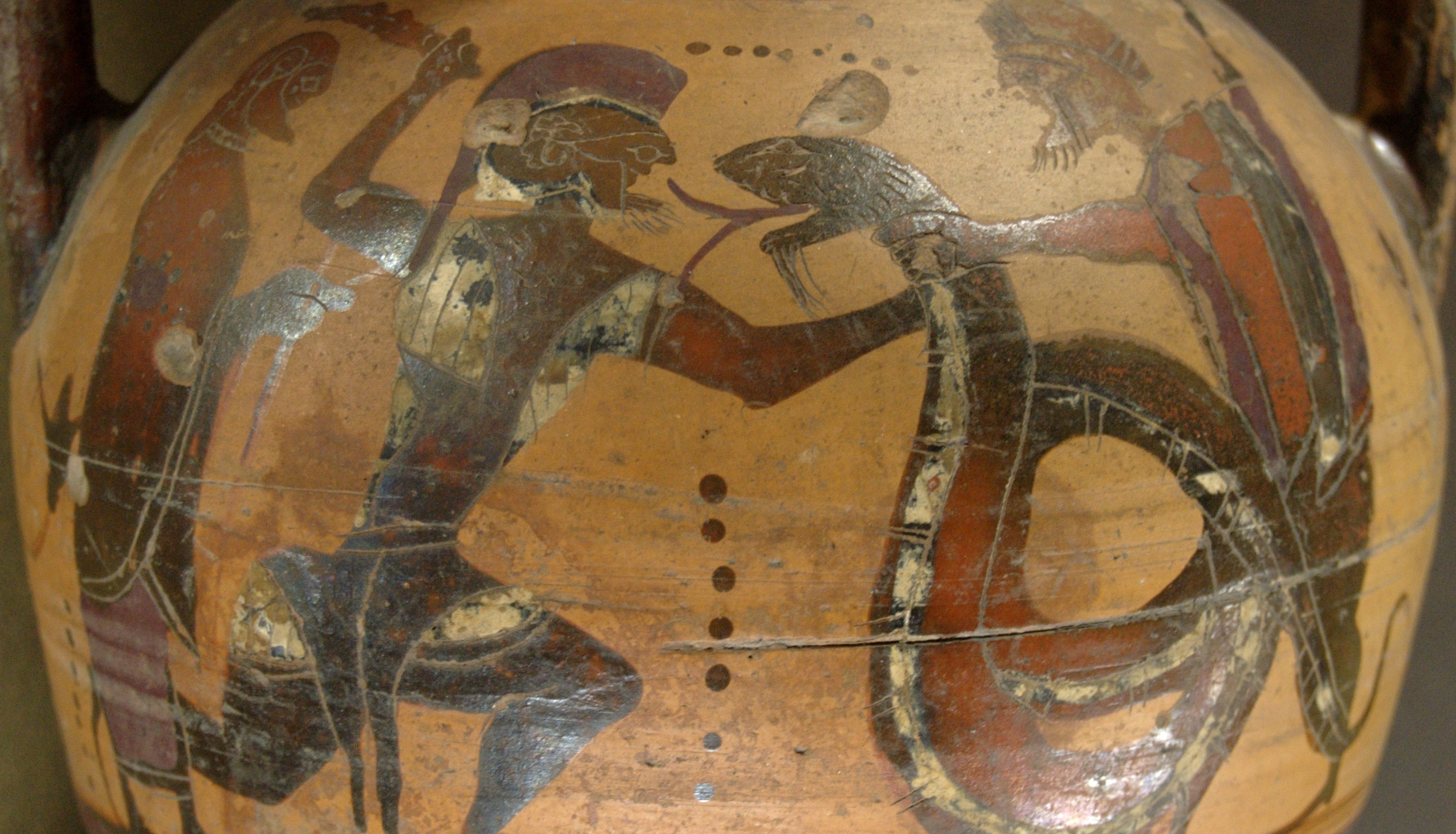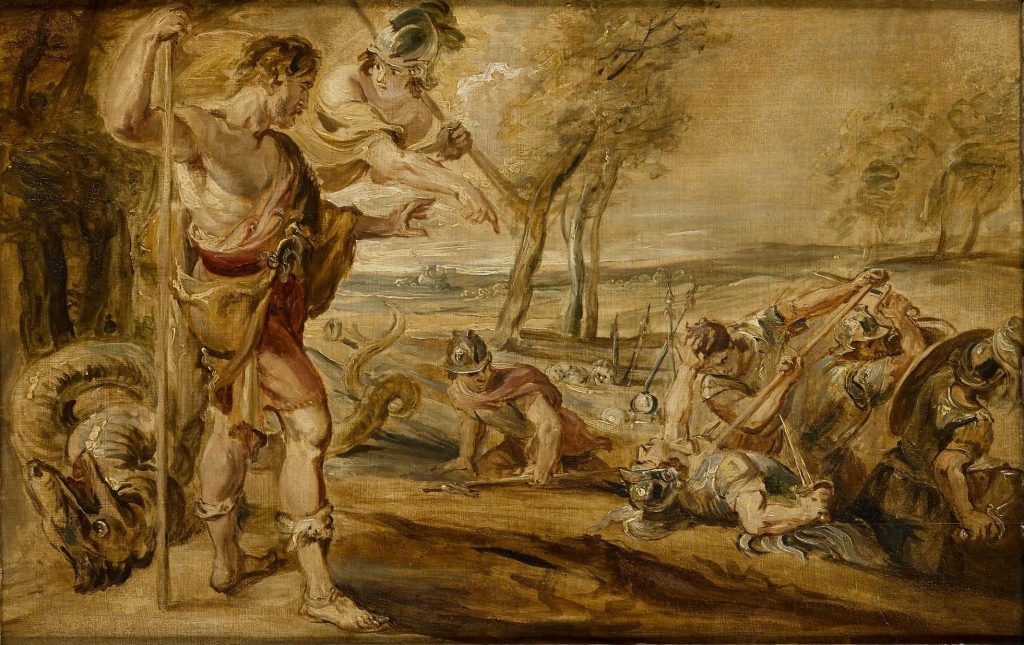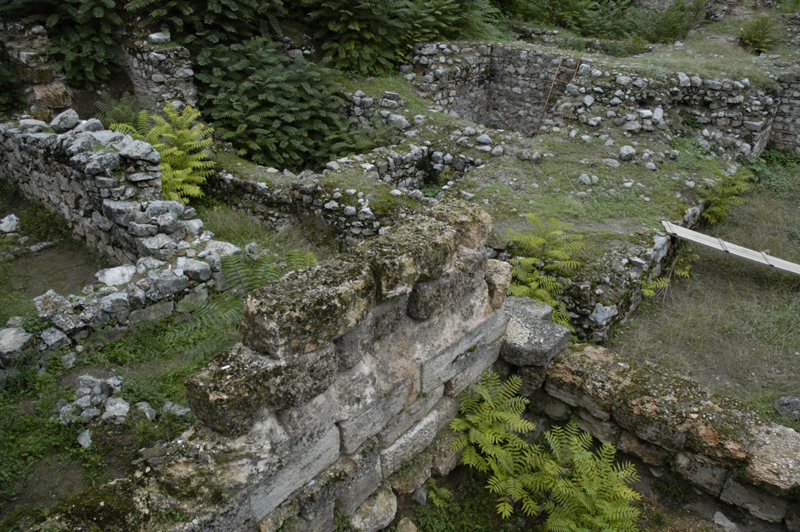by Ed Whelan, Contributing Writer, Classical Wisdom
Many heroes from Greek mythology have inspired people across the millennia. We can think of warriors and adventurers like Achilles, Odysseus and Jason. Yet amongst theses names, there is a figure that is especially remarkable: Cadmus, the legendary founder of Thebes. What makes Cadmus distinct amongst these names is that he was a foreigner, or in Greek terms, a barbarian. Yet he is still considered by the Greeks as one of the greatest heroes before Heracles.
The Early Adventures of Cadmus
Cadmus was born in Phoenicia, and was apparently the son of King Agenor, yet his real father may have been Zeus. The etymology of the name may Camus mean ‘Easterner’, and this reflects his foreign origins. His sister was the beautiful Europa, from whom we derive the name Europe, and she was abducted by the great philanderer Zeus. Cadmus was sent to retrieve her and bring her home, but he had no success. In desperation he visited the Oracle of Delphi for some help in his search. He was told to abandon his search, and instead focus on founding a city. The Oracle ordered him to follow a cow with unusual markings. Where she lay down, he was to find a city.
He followed the animal to Boeotia (land of cows), and she eventually lay down. After he sacrificed the cow to the goddess Athena, he laid the foundation for what later became the city of Thebes, one of the greatest cities in the Classical world. During the construction of Thebes, the first inhabitants were threatened by a dragon from a nearby spring. Cadmus, like any hero, naturally killed the dragon. In Greek mythology, the teeth of dragons had special powers when they were sown in the ground. Cadmus sowed the earth with the slain dragons’ teeth, and from these grew a race of armed warriors, who were called Sparti (or ‘the sown’ in Greek).
They immediately started into violence, and killed each other until only five were left standing. These five were enlisted by Cadmus and helped him to build a citadel in Thebes. The descendants of the five Sparti became the leading aristocratic families of Thebes.
The Later Adventures of Cadmus
Yet all was not well. Cadmus had unwittingly offended the god of war, Ares. The slain dragon was sacred to this Olympian. The hero had to serve Ares for eight years as a bondsman, little more than a slave. After the eight years were finished, Ares gave his daughter Harmonia to Cadmus as his bride. Their wedding was attended by many of the gods. One of the gifts that Harmonia received was a gift of a necklace made by Hephaestus. The couple had a son, Polydorus, and four daughters, Agave, Ino, Autonoë and Semele (who would become the mother of Dionysus). Myths relate that Cadmus also founded some cities in Illyria. In some stories, after a series of misfortunes, such as their grandson King Pentheus being torn apart, and civil strife in Thebes, the couple wished that they were black serpents rather than endure their miserable existence. Upon hearing this they couple were changed into black serpents by the gods. After some time as snakes, Zeus rescued the couple and brought them to Elysian Fields where they spent, eternity in a blessed and happy state.
The Meaning of the Myth
The Cadmus myth, like other fables, demonstrates that humans must respect the gods or face their wrath. Some have argued that the hero was based on a real-life king or warrior and point to some refences in a Hittite record. He was a cultural hero and his killing of the dragon, and the founding of Thebes can be seen as helping to create civilization. The myth of Cadmus may represent the influence of Eastern cultures, specifically the Phoenicians, on Greek culture. Certainly, the myth may have been used to explain the adoption of the phonetic alphabet from the Levant. The marriage of Harmonie and Cadmus may represent the union of Greece and the East. Furthermore, the years he spent serving Ares may reflect the employment of Eastern mercenaries in the Hellenic World. Finally, the story of Cadmus was used to explain the foundation of Thebes and other cities, which was common in Hellenic mythology.
References
Graves, Robert (1980). Greek Myths. Pélican : London.












No comments yet. You should be kind and add one!
Our apologies, you must be logged in to post a comment.